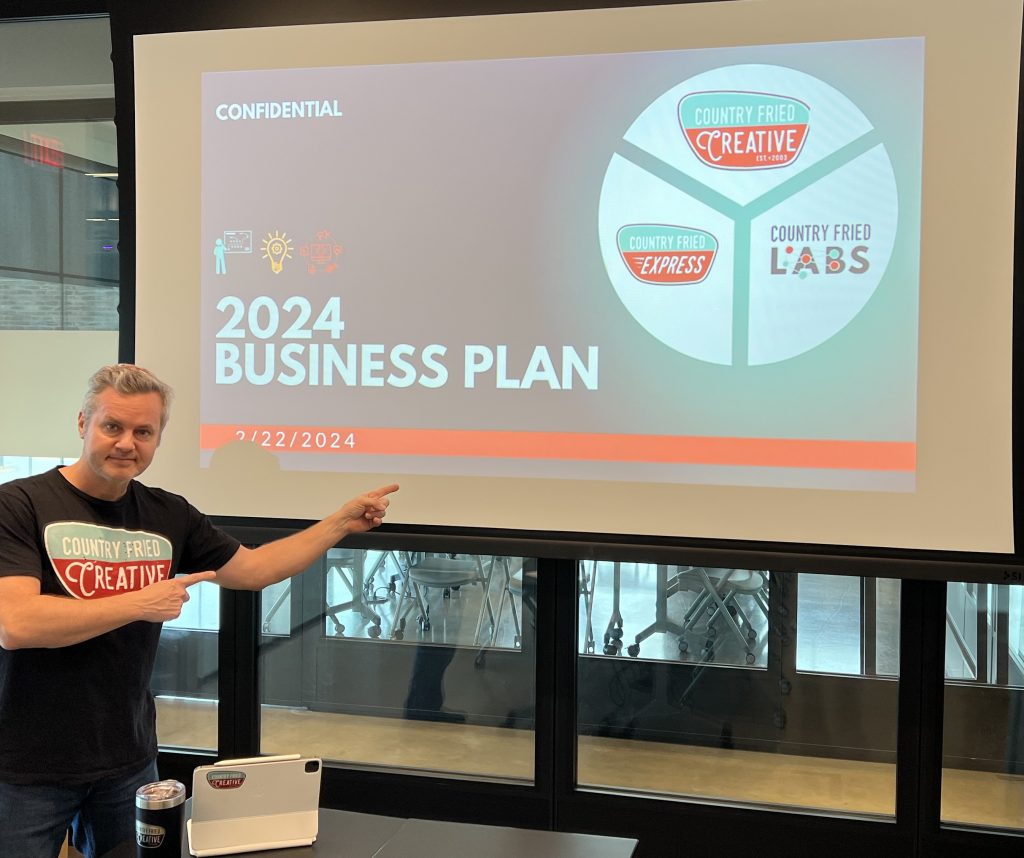So you’ve made a mistake, now what? You’re not alone, although you may feel that way. I’ve made many mistakes and blunders over the years. No one is perfect. Leaders are often criticized by “armchair quarterbacks” who are not privy to the complete details of a situation. Entrepreneurs are especially vulnerable to mistakes because they’re usually “all in” financially, which makes mistakes extra painful. Unlike a large organization where one may be spending someone else’s money, the small business owner or nonprofit executive is totally at risk when making decisions. Here are some common mistakes that leaders, including myself, have made:
- Failure to communicate effectively: This is probably the source of more mistakes than anything else. Whether you’re communicating with your team or with a client, it’s essential to have clear communications. Although verbal communication is often the most effective way to collaborate with people, if you’re running a business, it really needs to be followed up with written documentation to ensure clarity. Memories tend to be selective, especially when dealing with complex issues.
- Avoiding tough decisions: I’m guilty of this, and it’s something I work on constantly. I tend to be optimistic and hold on to things longer than I should. A leader doesn’t need to be reckless, but they do need to be decisive. Doing so inspires confidence and clarity. Not doing so can lead to problems down the line. Once you have all the facts you need, make the decision. I’m not alone in this regard. I know a lot of leaders struggle with procrastination.
- Inflexibility and lack of adaptability: Most leaders tend to be older and have experiences which helped them to get where they are, but may not be enough to get to where they need to be. The world is a rapidly changing place, and what worked yesterday may not work tomorrow. A lack of adaptability can hinder company growth, stifle emerging leadership within an organization, and cause problems with clients who need newer solutions.
- Delegating too much or too little: I’ve written previously about delegation, and it’s one of the hardest things to get right. If you delegate too much, your team may not have enough guidance to go in the direction you want. On the other hand, too little delegation will run the leader ragged and stunt the growth of a high-powered team. Improper delegation can lead to all kinds of errors and mistakes internally and externally.
- Moving too quickly or too slowly: Pacing is an important concept when working with other people. Moving too fast on something may leave people behind or expend resources wastefully on a market opportunity that’s not quite ready. Moving too slowly can cause an organization to “miss the boat” on profitable and beneficial opportunities. When working with a team or a client, it’s important to make sure everyone is “on board.”
- Failing to give and receive feedback: When something isn’t quite right, it’s important to speak up so that a situation doesn’t get worse. Most people don’t try to make mistakes, but if one is being made, it’s important to say something in the spirit of improvement. This helps people improve non-optimal circumstances. Maybe more importantly for the leader is to have the ability to receive proper feedback. A wise leader seeks counsel from trusted advisors and input from people at all levels of an organization. When giving or receiving feedback, it’s important not to get into a “blame game”. We all know people who are never wrong, like to spread rumors, and are very quick to point fingers at others. Avoid those people.
- Misallocating resources: Doing the right things, at the right times, for the right reasons, with the right resources is not easy. Just about everything a business does involves time, money, and people. Knowing how much time to spend on things, how much money to invest in projects, and knowing which people to assign to tasks is both an art and a science. For a small business or nonprofit, cash flow management in particular is extremely tough (this is true in many households as well). Usually, no one but the accountant and the business owner knows the big picture. Even with good intentions, sometimes a leader doesn’t get it quite right with resourcing.

I won’t go into details, but last year, I made some mistakes with my business. Lessons have been learned, changes have been made, and we’re moving forward in this new year. What follows are suggestions that I try to follow on how to fix mistakes and move on:
- Accept responsibility for the mistake: A true leader acknowledges and takes responsibility for mistakes they or their team make. Accepting responsibility should be done clearly and without deflecting blame. Unfortunately, many so-called leaders in society do the opposite and blame everyone but themselves. That’s not leadership. Although it’s rare, there is one exception to this rule – if you’ve been advised by an attorney not to admit fault because a legal issue is at stake. That should be the only exception.
- Understand the impact of the mistake: Most mistakes have consequences. Quickly and completely assess how the mistake has impacted your team, your customers, and your organization. Doing this will help you determine what needs to be done to fix the situation.
- Apologize for the mistake: Mistakes often impact other people. If that’s the case, an apology shows respect to those affected as well as a commitment that amends will be made. Not everyone will accept your apology. If that happens, it’s on them – not you.
- Fix the mistake: Taking appropriate corrective action demonstrates that you are willing to “right the wrong.” This may involve a refund or discount to an affected customer, a proper allocation of company resources to a project, or a reassignment of team members to better maximize everyone’s strengths. It could also mean that company policies and procedures need to be adjusted to avoid a recurrence of the problem.
- Learn from the mistake: Non-lethal mistakes are learning experiences. People rarely learn from wins, in fact quite the opposite often happens. Don’t get me wrong, it’s great to win, but there’s a downside. Constant winning can lead to complacency and stagnation. Nothing lasts forever, especially not in the business world. Think of all the failed businesses who thought they were immune from losing. Most learning and improvements come from mistakes. Determine the root cause of the mistake and gain insights from it to make you and your organization more resilient in the future.
- Forgive yourself for the mistake: This is the hardest thing to do. No one likes to make mistakes, but we all do. Yes, because you’re the leader, there will be some who are quick to criticize your mistakes, and that makes it hurt even more. Forgive them, but especially forgive yourself. Once you’ve accepted responsibility, apologized, and fixed the mistake, it’s time to move on with new knowledge and a clear conscience. Don’t let the past weigh you down; allow it to fortify your list of experiences to better prepare you for what’s ahead.
Making mistakes is no fun, but it’s part of the journey. Over the years, I’ve made many mistakes, and I’ll probably make more in the years ahead. Handling mistakes as a leader requires maturity, accountability, and commitment. When everything is going right, it’s easy for people to take credit. When things go wrong, most people like to point fingers and ascribe blame. Unlike what we often see in today’s “me first” society, a true leader gives credit to their team for the wins but accepts responsibility for the mistakes and losses. Once a leader accepts responsibility and apologizes, it’s time to fix the problem and move on. I think the hardest part of righting a wrong is forgiving yourself. Don’t carry the baggage of guilt into the future; it’ll only hold you back from improvement. Let mistakes toughen you up and prepare you for what’s ahead. We need more accountable leaders who lead with head, hands, and heart. Will you join me in being that type of leader?
[Joe Domaleski, a Fayette County resident for 25 years, is the owner of Country Fried Creative – an award-winning digital marketing agency located in Peachtree City. His company was the Fayette Chamber’s 2021 Small Business of the Year. Joe is a husband, father of three grown children, and proud Army veteran. He has an MBA from Georgia State University and enjoys sharing his perspectives drawing from thirty years of business leadership experience. Sign up for the Country Fried Creative newsletter to get marketing and business articles directly in your inbox. ]









Leave a Comment
You must be logged in to post a comment.